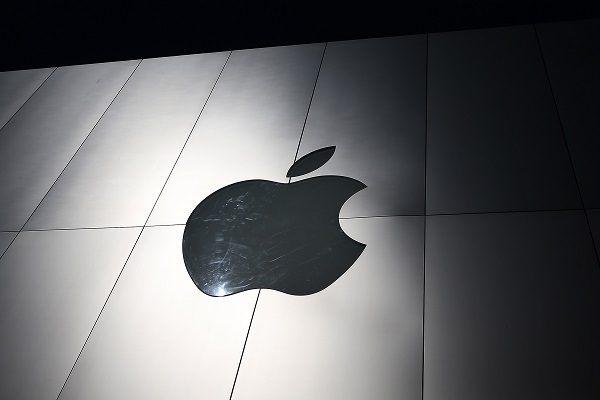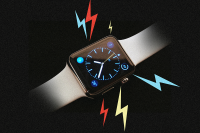In case you missed it, Apple’s market capitalisation has now hit the $1trillion mark – something which is as mind boggling as it was inevitable. Everyone with a newswire, Twitter feed and website seems to have latched onto the milestone. You’d have thought they’d all successfully predicted this event on 1 April 1976, when the company was founded. But the question now is whether the valuation has made a fool of all of us?
According to Mike Ingram, Chief Market Strategist at WH Ireland, ‘In just over a decade Apple has transformed itself from a niche tech company for nerds to a global consumer goods powerhouse. While it currently deserves its status, there is the real possibility that Apple may be pipped by the next big thing.’
In many ways it was intuitive that the company now most famous for the iPhone won the race against its peers to hit such a mighty milestone. The cliché is that no one can reinvent the wheel – but it would appear that reinventing the mobile phone is as valuable, or arguably even more so.
As is often the case, the best way of getting a handle on the most impressive achievements in business is to get the perspective of time. From a branding perspective, Apple has always been special. From the name – inspired by The Beatles record label, to the fierce loyalty of its customers when it came to the Mac, outstanding has been the best way of describing this company. Adding to the loyalty is the sheer addictiveness of the smartphone, so much so that it is now increasingly said to be causing psychological and behavioural issues.
Homing in closer to Apple itself, it can’t be denied that Tim Cook has steered the ship with distinction – especially given what a hard act Steve Jobs was to follow. But at the same time cynics might suggest that Jobs had laid so much of the foundations of the Apple infrastructure – the culture, the knowhow and so on – that even Coco The Clown could have ridden the momentum behind this company. This momentum in terms of the share price, and Apple’s status within the so called FAANGS companies, is only accelerating.
However, there has been a divergence in terms of the stock market perception, and the fundamental realities in the real world. Current smartphone market conditions have become highly competitive, with Apple losing out to China’s Huawei. Ironically, industry forecasters had predicted this state of affairs. They suggested correctly that Apple might actually sell fewer phones, but make more money from ancillary products and services, as well as better margins on expensive items such as the iPhone X. This proves that Tim Cook’s strategy has worked. Veteran City Commentator David Buik agrees. ‘Considering all the early heartbreak Steve Jobs and later Tim Cook have gone through, we are looking at an amazing feat. Perhaps the only disappointed onlooker will be Jeff Bezos of Amazon, who will no doubt wish to usurp this achievement.’
And how was it not going to work given the bedrock Apple’s business lies on? In Apple we find products that sell like hot cakes, which have also changed us forever.
Historically, the largest amounts of money have been made by those who change behaviour. The statistic that the average smartphone owner checks it once every 12 minutes is staggering. According to Patrick Tsang, Chairman of Hong Kong based Family Office, Tsang’s and Co, ‘In China one could say the statistic seems like it is every minute or two, not 12 minutes. We are looking at something which has graduated from being a recreational drug to as necessary as water. This is almost certainly a development that even someone with visionary genius of Steve Jobs could not have anticipated.’
As far as what may be around the corner, we may well ask whether we are at Peak Apple. Will it follow in the wake of Blackberry, or Nokia? In some ways, being overtaken by Huawei is something of a red flag. And it is also the case that despite several attempts, no new killer product has been forthcoming.
A VR phone, an AI phone or a wearable phone may all grace the 2020s, but for now we are still rinsing and repeating the original 2007 iPhone over and over. Does this appear to concern the industry or investors? Not really, and while this relative enthusiasm reigns, Apple is quite rightly enjoying its place flying above the clouds as far as its competitors, and the doubters.






Comments